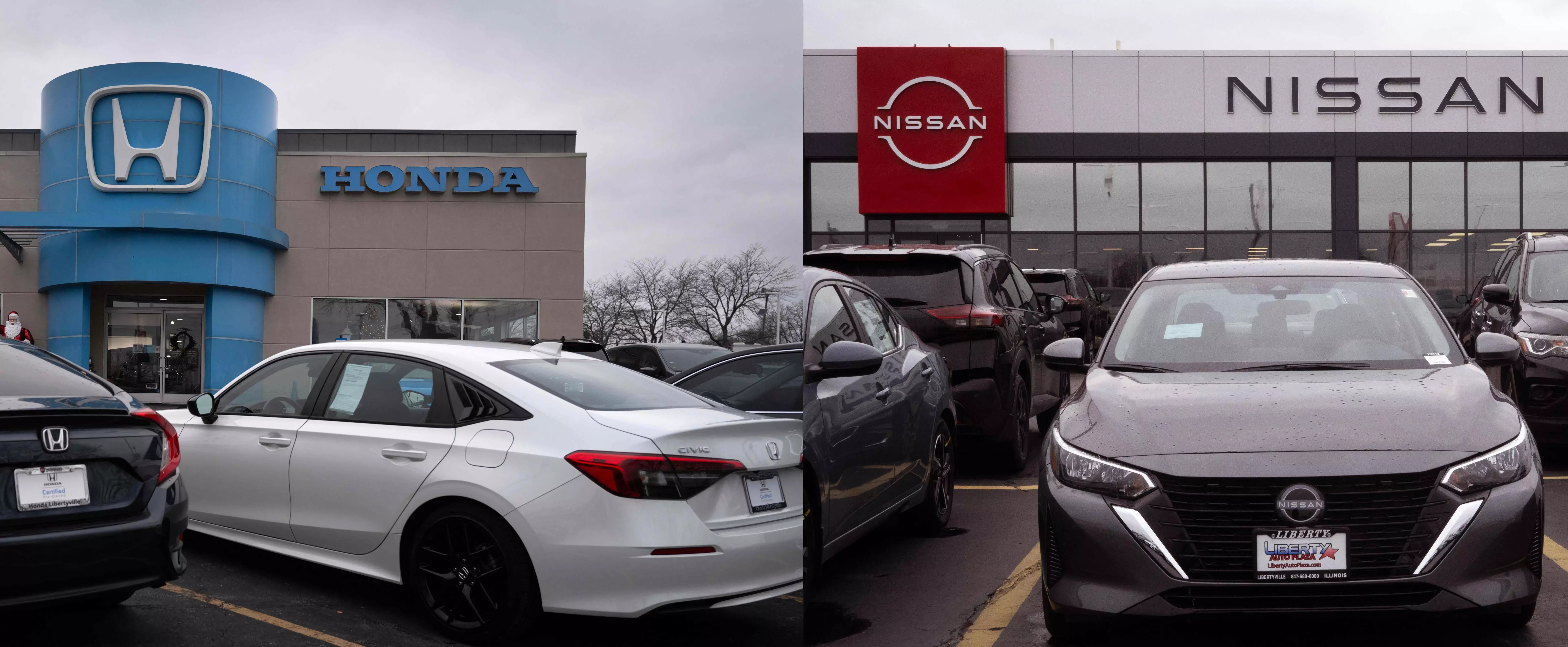
Nissan’s share price surged nearly 24% in Tokyo after reports citing unnamed sources said it could merge with Honda to become the world’s third-largest automaker. Honda’s share price fell by 3 percent. Mitsubishi Motors Corp., a member of the Nissan alliance, is also part of the talks.
Trading in Nissan’s shares was suspended but the companies jointly issued a statement saying they were “considering various possibilities for future cooperation, but no decision has been made.”
Japanese automakers have fallen behind larger rivals in EVs and are now scrambling to cut costs and make up for lost time.
Nissan, Honda and Mitsubishi announced in August that they would jointly research electric vehicles such as batteries and software for autonomous driving to better adapt to dramatic changes in the auto industry centered around electrification. A preliminary agreement between Honda, Japan’s second largest automaker, and Nissan, the third largest, was announced in March.
The merger could result in a behemoth worth about $55 billion based on the market capitalization of all three automakers.
Joining forces will help smaller Japanese carmakers add scale to compete with market leaders Toyota Motor Corp. of Japan and Volkswagen AG of Germany. Toyota has technology partnerships with Japan’s Mazda Motor Corporation and Subaru Corporation.
What does Honda need from Nissan? Nissan has truck-based body-on-frame large SUVs like the Armada and Infiniti QX80 that Honda doesn’t, with bigger towing capacity and better off-road performance, said Sam Fiorani, vice president of Autoforecast Solutions.
Nissan also has years of experience building battery and electric vehicles and gas-electric hybrid powertrains that could help Honda develop its own EVs and next-generation hybrids, he said.
“Nissan has some product segments where Honda doesn’t currently play,” a merger or partnership that could help, said Sam Abuelsamid, a Detroit-area automotive industry analyst.
While Nissan’s electric Leaf and Aria don’t sell well in the U.S., they are solid vehicles, Fiorani said. “They are not resting on their laurels, and they are developing this technology,” he said. “They have new products coming out that can provide Honda with a good platform for its next generation.”
why now Nissan last month said it would cut 9,000 jobs, or about 6% of its global workforce, and cut global production capacity by 20% after reporting a quarterly loss of 9.3 billion yen ($61 million).
Earlier this month it reshuffled its management and its chief executive Makoto Uchida took a 50% pay cut to take charge of financial problems, saying Nissan needed to become more efficient and better respond to market tastes, rising costs and other global changes.
Fitch Ratings recently downgraded Nissan’s credit outlook to “negative,” citing declining profits due to price cuts in the North American market. But it noted that it has a strong financial structure and solid cash reserves of 1.44 trillion yen ($9.4 billion).
Nissan’s share price has fallen to where it is believed to be a deal. A report in Japanese financial magazine Diamond said the talks with Honda were necessary after Taiwanese iPhone maker Hon High Precision Industry Co., known as Foxconn, began exploring a possible acquisition of Nissan as part of a push into the EV sector.
The company has struggled for years following a scandal that began in late 2018 with the arrest of former company chairman Carlos Ghosn on charges of fraud and misappropriation of company assets, charges he denies. He was eventually released on bail and fled to Lebanon.
Honda reported its profit in the April-March first half fell nearly 20% from a year earlier, as sales in China were hit.
Further headwinds Toyota made 11.5 million vehicles in 2023, while Honda produced 4 million and Nissan 3.4 million. Mitsubishi Motors alone earned over 1 million. Even after the merger, Toyota will remain Japan’s leading automaker.
All global automakers face a potential blow if President-elect Donald Trump follows through on threats to raise or impose tariffs on imports of foreign products from allies like Japan and even neighboring countries like Canada and Mexico. Nissan is one of the major car companies that has adjusted its supply chain to include vehicles assembled in Mexico.
Meanwhile, analysts say there is a “potential shift” happening across the industry, led by people who feel they can’t afford to pay nearly $50,000 for a new vehicle. In the US, an important market for companies such as Nissan, Honda and Toyota, it is forcing auto makers to consider lower prices, which further eats into industry profits.